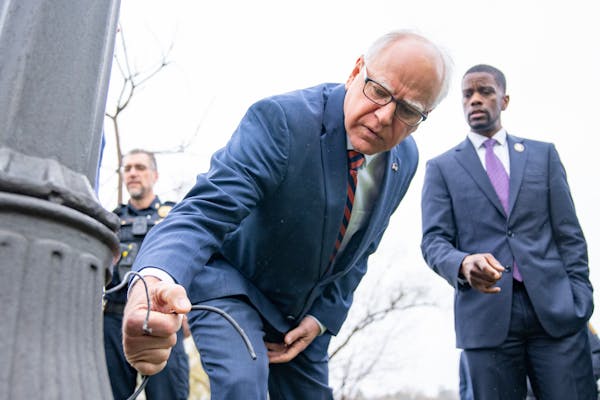Opinion editor's note: Strib Voices publishes a mix of guest commentaries online and in print each day. To contribute, click here.
•••
Here we go again. Several Minnesota communities regrettably have been at the forefront of some of the most prolific municipal broadband failures in the country. As CEO of an organization that tracks wasteful government spending, I hoped we were done documenting muni-broadband failures. Yet it appears that we are not: Some Willmar city officials seem determined to risk taxpayer funds by investing in a project that could rack up $33 million in debt owed by taxpayers if the project fails.
The program under consideration at City Hall is called the "Connect Willmar Initiative." Proponents believe that Willmar needs to build and operate a very expensive municipal "open-access internet" service network. In plain language, Willmar taxpayers would pay to construct a "network" of fiber access cable that would allow "multiple internet providers to use the network, paying a fee to the city for its use." Taxpayers should understand what a costly, taxpayer-subsidized and highly technical undertaking this network would be: According to Brent Christensen, CEO of Minnesota's Telecom Alliance, an industry expert, "There is not a successful open-source internet network in the country." Yet Willmar officials continue to push this project forward.
City leaders say this service is not competing with multiple existing city internet providers but, sadly, that's exactly what it is doing. The "magical thinking" that allows Willmar officials to believe they will succeed where many others have failed is why city taxpayers should voice their concerns now — before it's too late.
You don't have to look too far into the details of this project to see how and why it is risky, especially for a city with many other important unfunded priorities.
First, according to the network consultant planning this fiber network, not one community in Minnesota has ever successfully constructed an open-access network. Success for a program like this depends upon two key factors: first, that many Willmar residents are either "unserved" or "underserved" with the internet service currently available in the community, and second, that they will drop their current private ISP in favor of a new provider — the city of Willmar.
Frankly, if city-owned internet networks are such a great deal for taxpayers, why have so many communities (including several in Willmar's backyard) built municipal networks only to sell them for pennies on the dollar, leaving taxpayers holding the bill?
Facts are stubborn things, and when a government entity attempts to compete with a private entity providing the exact same service, the government entity is often surprised that the private service spends gobs of money to keep its existing customers. More important, city taxpayers will be paying to "market a service" that can easily be found in the Yellow Pages with faster internet service and at a cheaper price. Several years ago, after Monticello, Minn., city officials decided to compete with the private ISP providers in their community, the existing ISP companies went door-to-door, offering existing customers cheaper service along with a free flat-screen TV — a very good deal that eventually led to the downfall of Monticello's municipal broadband experiment.
Interestingly, many other communities throughout Minnesota are currently building and expanding internet fiber networks with private financing. This is a safer and much cheaper alternative for taxpayers that would achieve the same results rather than using city-issued general obligation bonds that leave city taxpayers holding all the risk if the project fails.
Finally, one must ask the most important question: Is the Connect Willmar Initiative the highest priority for city tax revenue in 2025?
Whether you agree with the leadership of the new administration in Washington or not, one of the most bipartisan and popular initiatives launched thus far has been to seek out waste and fraud in our federal government.
Taxpayers are tired of paying high taxes that fund unrestrained government spending, which often provides little or no substantial services to the very same taxpayers footing the bill. But most important, city officials need to discern the difference between critical city services (building and maintaining city roads, prompt snow removal, affordable sewer and water services, and many others) and services that taxpayers can find if and when they need it and contract with a private service provider, all without government intervention. Government should only build what the private sector cannot or will not build.
Willmar city officials are making a huge and risky $33 million bet that they can beat the odds of many other communities across the country and build an internet project that will succeed. Since there isn't one successful government-owned open-source internet network in the entire country, I think the odds are pretty good that Willmar will sadly join the legions of failed municipal operations that will regretfully leave city taxpayers paying a bill for a service they didn't want and a network they don't need.
Annette Meeks is CEO of the Freedom Foundation of Minnesota, an independent, nonprofit educational and research organization dedicated to free-market principles and liberty-based public policy initiatives.
